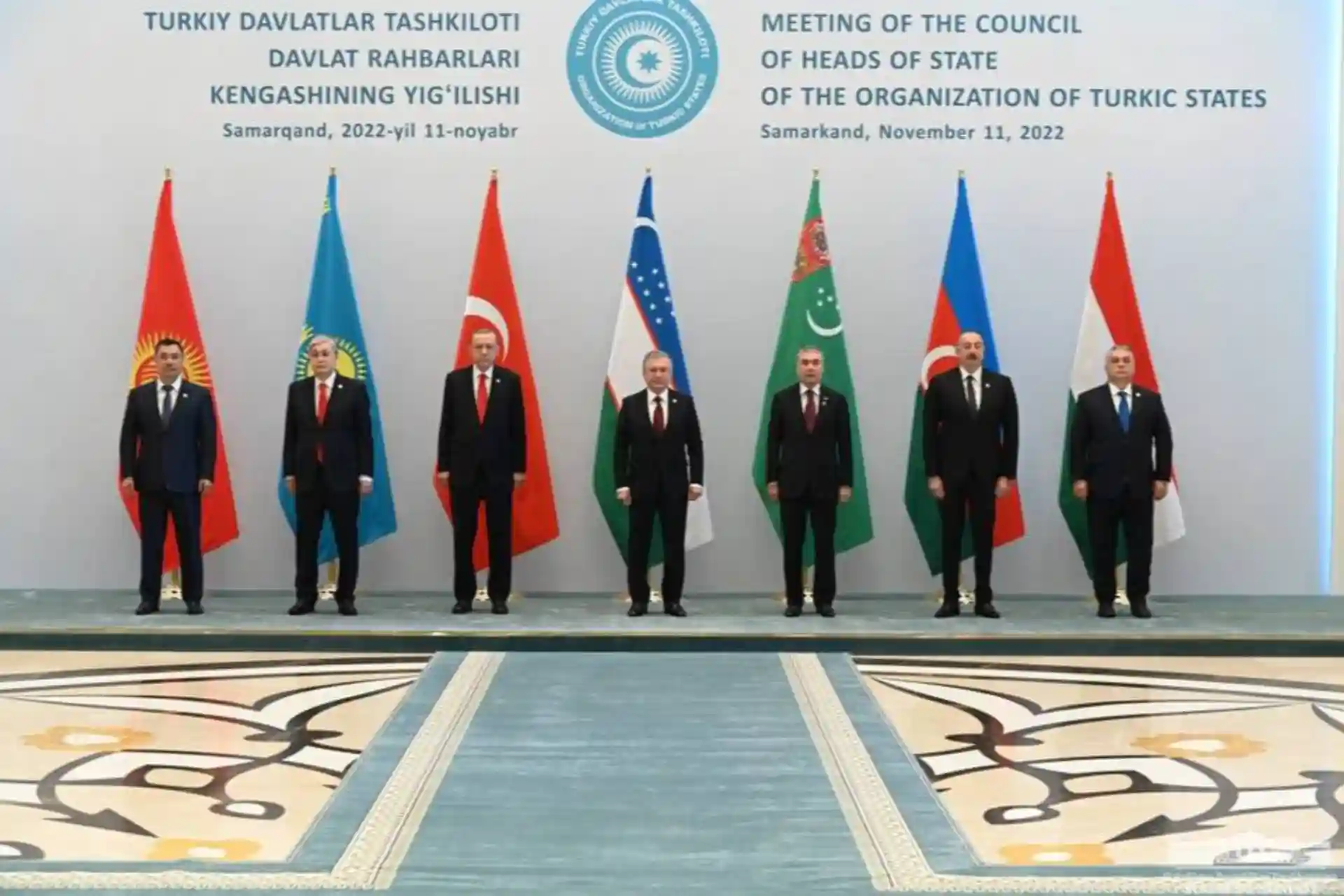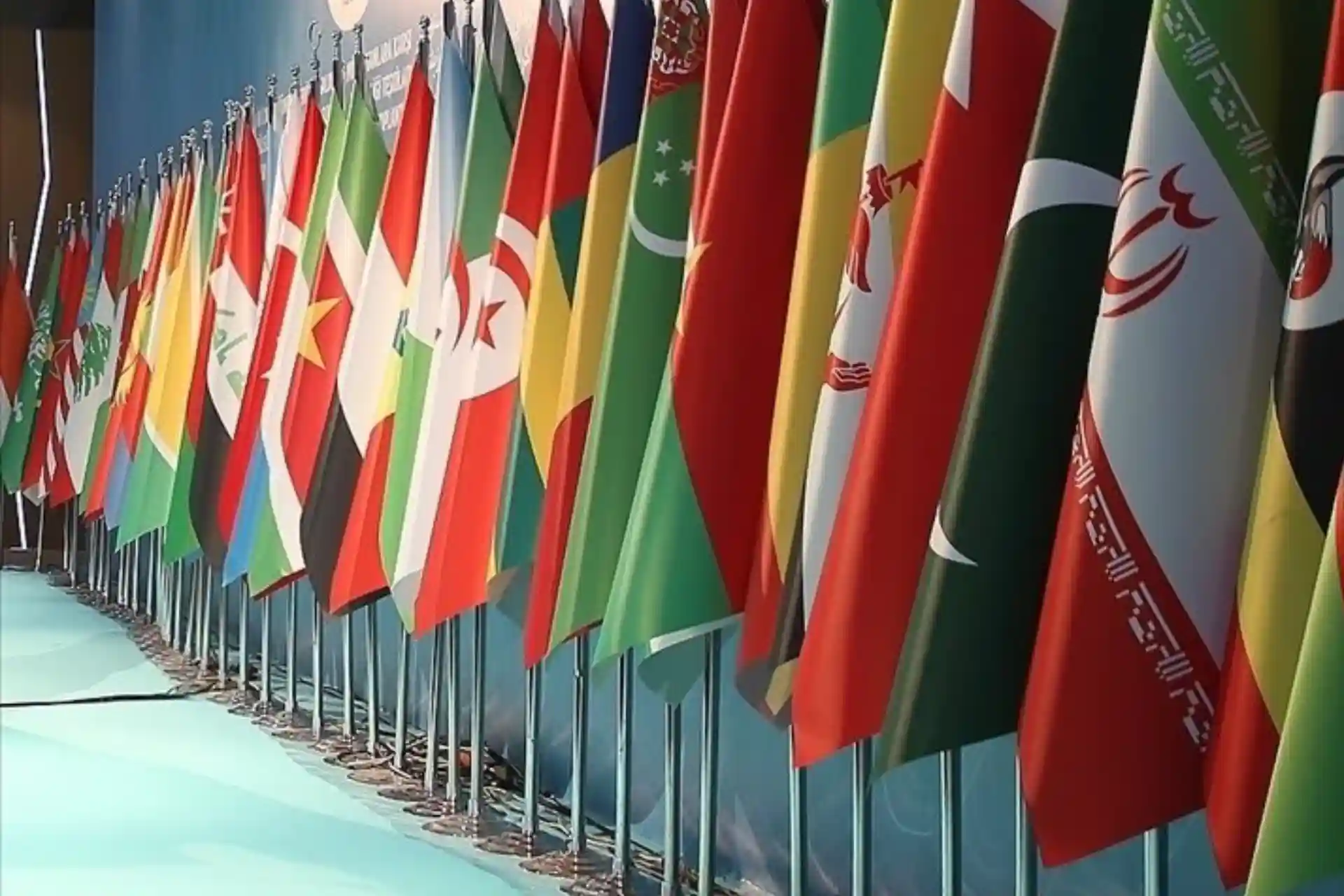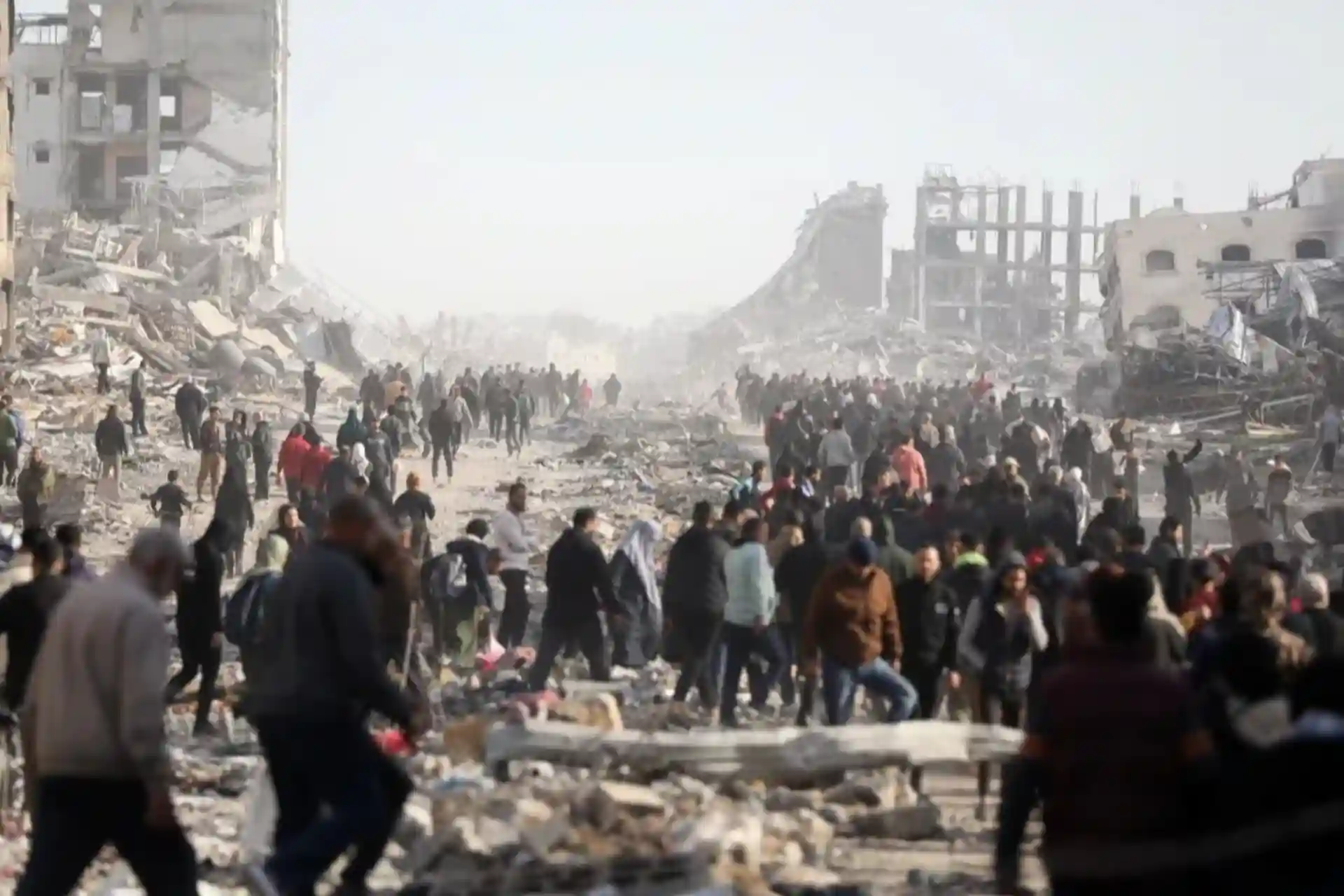10.10.2025 12:13
1144
12th Summit of the Organization of Turkic States: What issues were on the agenda?
While the Organization of Turkic States (OTS) continues its internal cooperation and integration process, it is also moving towards becoming an influential player in the global arena by establishing open dialogue and cooperation with the outside world.
The 12th Summit of the Heads of State of the TEU, held in Gabala, Azerbaijan, on October 6-7, 2025, on the theme of “Regional Peace and Security”, was a clear expression of this goal. During the summit, the chairmanship of the organization was transferred from Kyrgyzstan to Azerbaijan. Due to the high level of participation of all member and observer states, this meeting was considered one of the most prestigious summits in the history of the TEU.
At the end of the summit, the leaders adopted the Gabala Declaration, which contains 121 articles. Agreements were also signed on the establishment of the "TDT+" format, strengthening the activities of TURKSOY, and implementing a number of reforms in the Turkic Academy. In addition, Turkmenistan joined the Turkic Academy and the Turkic Culture and Heritage Foundation as an observer state, and the Turkish Republic of Northern Cyprus (TRNC) received observer status in the Turkic Academy.
Holding it in Azerbaijan is symbolic
The Turkic States Organization consists of three main geopolitical regions - Anatolia, the South Caucasus and Turkestan. Among them, Azerbaijan, the leading country of the South Caucasus, acts as a connecting bridge for the Turkic world. The safest and most reliable connection between the Turkestan region and Turkey passes through Azerbaijan. This route has become a strategic goal of the TSO through the "Middle Corridor" project.
Azerbaijan has identified cooperation with the TEU as a priority in its foreign policy. At the same time, it is actively working to make the organization a strong and influential structure on the global scale. The importance of this policy becomes even more evident when considering other international and regional alliances operating in the region. The words of President Ilham Aliyev, “Our family is the Turkic world, we have no other family,” show how important the TEU is for Azerbaijan.
Therefore, in recent years, Azerbaijan has been strengthening close cooperation with the Turkic states not only within the framework of the TPT, but also in bilateral relations. Currently, Azerbaijan has alliance agreements or declarations of cooperation with three countries: Turkey, Kazakhstan and Uzbekistan. Viewing the Turkic world as a priority political direction has become a common position not only of statesmen, but also of the entire Azerbaijani society.
Coherence and coherence in foreign policy
In the Gabala Statement, the TEU states demonstrated solidarity in a number of areas of foreign policy. Including:
• Establishing the Zangezur Corridor and free communication between Azerbaijan and Nakhichevan,
• Supporting the process of restoring the liberated territories through a railway project connecting Azerbaijan, China, Kyrgyzstan, and Uzbekistan,
• Focusing on the security of Afghanistan from the perspective of the stability of the Turkestan region,
• Support for the Turkish Cypriot people and recognition of them as part of the Turkic world,
• Supporting the processes of restoring peace and stability in Syria are also important foreign policy directions for Turkey.
Another important point of the statement is the decision to establish a Consular Cooperation Platform. Its purpose is to facilitate consular services, protect citizens abroad, and enhance coordination among member states. Through this initiative, consular offices of TDC member states will be able to provide mutual services to citizens of all member states.
Security cooperation
The participating countries put forward their proposals on security issues at the summit. President Ilham Aliyev proposed strengthening military cooperation between member states and holding joint military exercises in 2026. Kazakh President Kassym-Jomart Tokayev stressed the need for cooperation in the field of Siberian security. Uzbek President Shavkat Mirziyoyev proposed signing an agreement on Strategic Partnership, Eternal Friendship and Brotherhood between the Turkic states. The leaders agreed to prepare a draft of this agreement. Turkish President Recep Tayyip Erdogan said:
"We are ready to make all necessary contributions within our family circle in every area related to our security," he said, supporting all the proposals.
As global and regional security confidence has weakened in recent years, military and security cooperation between the TEU countries has been increasingly strengthened. Ministers and heads of defense industries of member and observer states met in Turkey in July 2025. At the Gabala summit, it was decided to hold this meeting in Azerbaijan in 2026.
In addition, the Secretaries of the Security Council of the TNC member and observer states met for the fourth time in Bishkek on September 11-12, 2025. The meeting discussed the current threats to the Turkic states, regional and global trends, and their impact on the Turkic world. At the same time, since 1992, the heads of the national special services of the TNC member states have been holding regular meetings.
The threats and opportunities that have arisen in the world and the region due to current geopolitical changes require close cooperation between the Turkic states in the military-security sphere. The strategic importance of the Turkic world geopolitics, especially in terms of energy routes, is increasing, making this region a center of global competition. Therefore, it is important to form military-security cooperation within the framework of the TPT to protect this region.
If the Turkic states do not achieve sufficient unity in this area, the fate of the region is likely to be determined by others. At the same time, there are also some differences in approach among member states on the issue of military cooperation.
What does the “TDT+” format mean?
The Organization of Turkic States was established as a structure based on a single culture, language, civilization and historical roots. However, since its inception, the organization has been developing in accordance with new geopolitical conditions in the region and the world. As it grows stronger, interest in it also grows.
However, full or observer membership in the TDT is determined only on the basis of common culture, language and nationality. Therefore, at the 2021 Istanbul summit, an additional protocol was introduced to the Nakhichevan Agreement, stipulating that the official language of a state for membership in the organization must be Turkish. However, this provision could limit the organization's sphere of influence in the international arena and turn it into a closed structure.
Therefore, at that summit, new statuses such as "dialogue partner" and "strategic partner" were introduced. This allowed countries to cooperate closely with the organization without becoming members of the WTO.
Turkish President Erdogan also stressed at the last summit that the TPT should not become a closed structure and should establish cooperative relations with third countries. Indeed, if the TPT wants to play an active role in finding solutions to global problems, it must cooperate openly with the world. In this sense, the “TPT+” format opens new doors for cooperation with regional organizations and other countries.
Conclusion
A strong Turkic States Organization would not only limit the influence of foreign powers in the region, but also play a major role in ensuring global energy, food, and commodity security. This cooperation would boost economic activity, develop trade, and reduce conflicts and risks in the region.
In this regard, the TDT has demonstrated that it has been serving these goals through rational and forward-looking steps since its inception. It is consistently advancing towards becoming an influential actor on a global scale, while strengthening its internal unity and strength and continuing open cooperation with the outside world.
Javid Valiev,
political scientist



